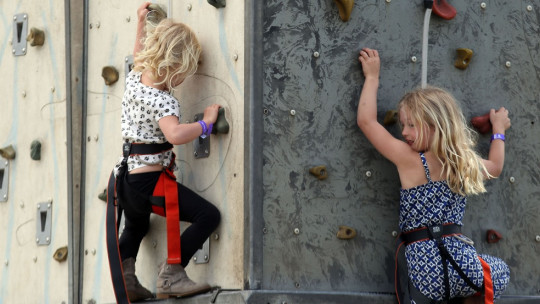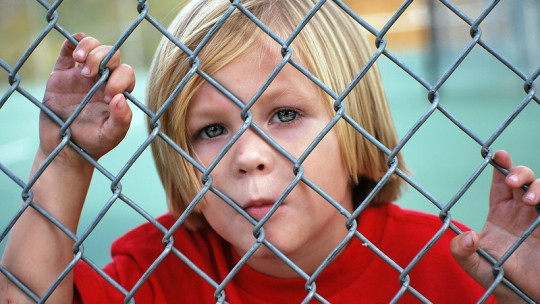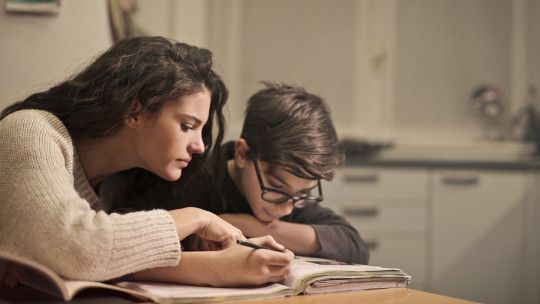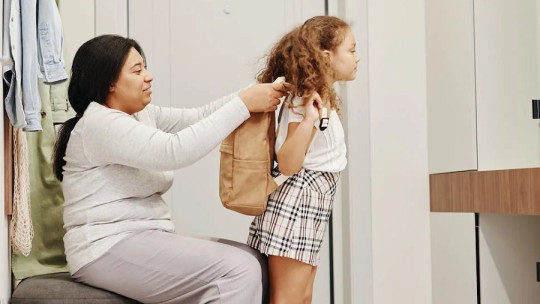
The role of father is extensive, in the sense that it encompasses various responsibilities and in turn these are modified as our children grow older.
One of the responsibilities that parents must face in fulfilling their role is to help their children with academic activities. Therefore, many parents tend to ask themselves the question How can I help my child study correctly?
How to help your children study
In this article we will see a series of tips that can be very useful when preparing to do homework with your children, so that you can help them learn in the best way and develop their full academic potential.
1. Meet regularly with your children’s teachers
The second place where our children spend the most time is at school, along with their fellow students and their teachers. That is why to answer the question of “how to help my child study?” We must worry about having a good relationship with our children’s authority figures at school and not do the little ones’ homework or spare them the efforts they must make to learn.
Communication with our children’s teachers is of great importance for our collaboration with them at home, taking into account that it is the teachers who will tell us which are the areas where our child’s knowledge needs to be reinforced at home.
Apart from the teacher meetings proposed by the institution, try to meet with teachers to talk about your child’s performance and behavior in class It could be when you go to pick him up from school; Before you leave, from time to time, he speaks for a few moments with the educators.
As well as the teacher will let us know what our child’s strengths are, to be able to enhance them even more from the family nucleus.
2. Attend all meetings organized by the school
Attending parent and representative meetings will allow you to meet not only your children’s teachers and the rest of the staff who work at the institution, but also the other representatives, which is important to get an idea of your classmates. study of your children.
3. Find out how your child is performing in subjects
Apart from the attention that teachers give to your child, it is important that you are also in charge of promoting their academic performance Remember that father figures are the most significant for the child and it is from them that he obtains his motivation and self-esteem.
The more you know about your child’s performance in his or her course, the better your knowledge will be about his or her personal abilities, and in this way you will be able to reinforce his or her skills and prevent his or her difficulties from limiting him or her.
4. Take private classes
If necessary, you could enroll him in some private classes with the intention of overcoming some specific academic limitations that he is taking at school.
The personalized attention of a private class teacher is a great help for your children to study better, but Even if you take this step, you should not ignore their progress ; His success remains, in part, your responsibility.
5. Review your notebooks together regularly
With his permission, review together the notes he has been making in his notebooks. This habit is good to have a clear track of what our children’s regularity is like during the weeks of study at school, and also being able to see first-hand which subjects are the most complicated
6. Help your child find their study method
Being clear that no person learns in the same way, it is important that you seek, together with your children, what may be the best study method for them at home.
Help them prepare for the tests and establish which techniques are more efficient than the others. So after a while you will be able to decide which ones you keep and which ones you should discard.
7. Take advantage of the potential of multimedia
Some of the most useful study resources are YouTube outreach videos, creating outlines and summaries (by your son or daughter). The fact of supporting textual information with images and video that illustrate what is expressed in words makes it easier to understand the study material, since this knowledge is “archived” in the brain through several senses, so Memories richer in nuances are generated
8. Provides support in managing moments of rest
The alternation of moments of rest, moments of study and moments of testing yourself is essential You must help the child understand that rest periods do not have to be wasted time, as long as they use them well, including them just before and after study sessions. In fact, if you don’t get enough rest, you will be better at concentrating and memorizing.
To achieve a perfect balance, make it a challenge to intersperse small breaks of ten or fifteen minutes with study sessions of half an hour; This will mean that during those thirty minutes, you will have incentives not to be distracted, in addition to not experiencing psychological exhaustion.
9. Get actively involved in school activities
Parent activities at school help your child understand the commitment you have to their learning, in addition to being an effective method of keeping in touch with the institution’s staff.
This also refers to contact through social networks or any other means that the school may use to stay close to representatives, find out if there are WhatsApp groups that may be of interest to you and ask to join them (although, obviously, You should only claim their time for really important questions that you believe are significant to help your son or daughter study).
10. Don’t underestimate his need to play
Boys and girls should not spend most of their free time studying; It is crucial that they have moments of play, even if they are not reaching their academic goals.
School progress should not overshadow the fact that children are people with the right to be happy and develop healthily through leisure
On the other hand, we must not forget that through play their implicit learning is also promoted, given that it is a context in which they can socialize and imagine combining different ideas with each other.








